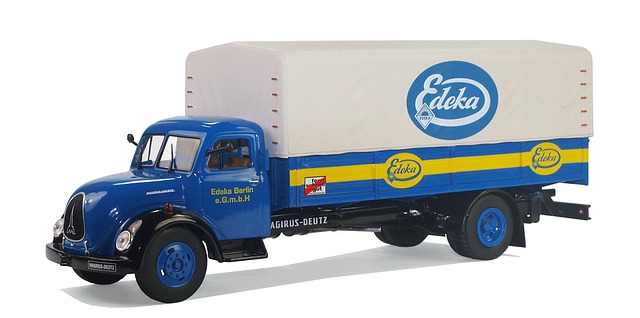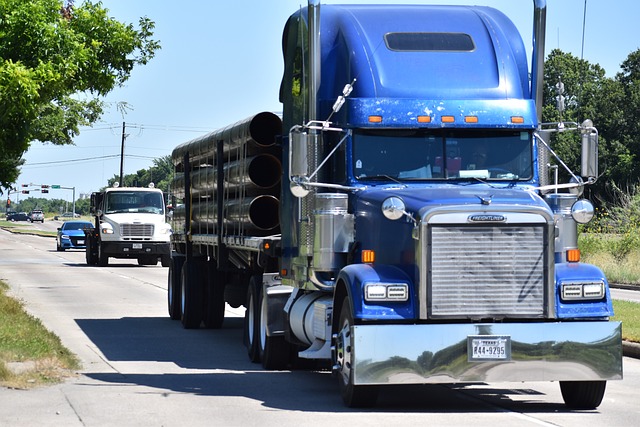Small fleet owners walk a tightrope between affordability and comprehensive insurance, but specialized providers offer tailored policies based on vehicle type, driving history, usage patterns, and location. By comparing quotes, reviewing policy terms, leveraging discounts, and adopting technology like telematics for usage-based insurance, fleet owners can secure quality protection without breaking the bank. Innovative strategies such as policy bundling or forming cooperatives further enhance affordability and comprehensive coverage, proving achievable through strategic partnerships and risk management tactics.
In today’s competitive landscape, small fleet operators face a delicate balance between managing costs and ensuring comprehensive insurance coverage. With rising operational expenses, finding affordable insurance for small fleets while meeting unique risk profiles is no easy task. This article guides you through understanding affordability, assessing specific fleet needs, implementing cost-efficient strategies, and exploring real-world case studies that demonstrate successful, budget-conscious solutions for small fleet owners.
Understanding Affordability and Comprehensive Insurance for Small Fleets

For small fleet owners, balancing affordability and comprehensive insurance coverage is a delicate act. Affordability means keeping operational costs low, including insurance premiums, to maintain profitability. Comprehensive insurance, however, ensures that your vehicles are protected against a wide range of risks—from accidents and damage to theft and vandalism. Striking the right balance involves evaluating risk factors specific to your fleet: vehicle type, driving history, usage patterns, and location.
Choosing an affordable insurance provider who specializes in small fleets can make a significant difference. These providers often offer tailored policies that consider unique operational needs, providing comprehensive coverage without breaking the bank. By comparing quotes, reviewing policy terms carefully, and leveraging available discounts—like safe driving records or bundling multiple policies—small fleet owners can secure quality protection while keeping expenses manageable.
Assessing the Unique Needs of Small Fleet Operations

Small fleet operations, whether they’re transporting goods or people, have distinct insurance needs that often go beyond standard policies. To ensure comprehensive coverage while keeping costs manageable, it’s crucial to assess each vehicle and its intended use. Factors like type of cargo, driving terrain, and average daily mileage can significantly impact risk levels. For instance, a small fleet specializing in urban deliveries may face higher claims due to congested roads and frequent stops, necessitating tailored liability and collision coverage.
Affordable insurance for small fleets doesn’t mean sacrificing protection. By evaluating these unique needs, insurers and business owners can collaborate to design policies that offer the right balance of coverage and price. This might include incentives for safety features like GPS tracking or regular maintenance programs, which not only reduce claims but also promote cost-effective fleet management practices.
Strategies to Balance Coverage and Cost Efficiency

In the quest for both comprehensive protection and affordability, especially for small fleet owners, a strategic approach is essential. One key strategy is to shop around for quotes from multiple insurers, comparing not just premiums but also the range of coverages offered. This allows for identifying providers who offer tailored plans that balance risk mitigation with cost-efficiency. Customizing policies according to specific needs—such as incorporating specific vehicle types or driving conditions—can lead to significant savings without compromising on necessary coverage.
Additionally, leveraging technology can enhance both affordability and coverage management. Telematics devices, which track driving behavior, enable insurers to offer usage-based insurance, where premiums are adjusted based on actual driving patterns. This not only promotes safer driving but also ensures that small fleet owners pay for the coverage they truly need, thereby enhancing affordability. Regularly reviewing policy terms and conditions is another vital step; updating or modifying policies as fleet operations evolve can prevent over-insuring while ensuring adequate protection.
Case Studies: Success Stories of Affordable, Comprehensive Insurance for Small Fleets

Many small fleet owners have successfully navigated the challenge of balancing affordability with comprehensive insurance coverage. Case studies from various industries reveal some common threads in their strategies. For instance, a small logistics company in urban areas optimized costs by bundling vehicle and driver insurance policies, leveraging their collective risk exposure to secure better rates. Another success story comes from rural agricultural businesses that formed cooperatives, allowing them to negotiate better terms with insurers due to the shared risk profile of their fleet.
These approaches demonstrate that affordability does not have to mean sacrificing comprehensive coverage. By adopting innovative strategies such as policy bundling and cooperative models, small fleet operators can access competitive insurance rates while ensuring their vehicles and drivers are adequately protected. This approach is particularly beneficial in high-risk sectors where specialized insurance needs can be costly, proving that achieving both affordability and comprehensiveness is feasible with the right partnerships and risk management tactics.
In conclusion, balancing affordability and comprehensive insurance for small fleets is achievable through a thoughtful assessment of unique operational needs and strategic cost-efficiency measures. By understanding the specific risks and prioritizing coverage where it matters most, small fleet operators can secure adequate protection without compromising their financial health. Adopting innovative strategies outlined in this article, including leveraging technology and specialized insurance programs, enables small fleet owners to navigate the market effectively and access affordable insurance tailored to their operations, ensuring both peace of mind and long-term sustainability.
